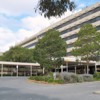Drug-Induced Acute Pancreatitis in a Cohort of 328 Patients. A Single-Centre Experience from Australia
Abstract
Context Acute pancreatitis is associated with risk of morbidity and even mortality. Routine prescription drugs have been linked to the causation of acute pancreatitis. Objective To determine the incidence, presentation, course and outcome of drug-induced acute pancreatitis amongst patients admitted to a public hospital. Design/setting A retrospective analysis of patients presenting with acute pancreatitis to the Modbury Hospital, South Australia from January 2006 to April 2011. Main outcome measure Each admission was reviewed within the electronic database for patient details as well as to determine the aetiological factor. In patients with drug-induced acute pancreatitis, the WHO Probability Scale was used to evaluate causality relationship. Results Three-hundreds and 28 patients were treated for acute pancreatitis during the study period. Biliary and alcohol-induced acute pancreatitis accounted for 80.8% of cases. Eleven patients (2 male and 9 female patients; median age: 59 years) were diagnosed with drug-induced acute pancreatitis. These included 5 cases of codeine-, 2 cases of azathioprine-, and 1 case each of chlorothiazide-, valproic acid-, oestradiol- and rosuvastatin-induced acute pancreatitis. Nine patients had a mild disease while 2 patients had severe acute pancreatitis with a median hospital stay of 4 days. Withdrawal of the drug resulted in cessation of the attacks in all patients over a median follow-up of 24 months. Conclusions Routine prescription drugs, as an aetiological factor, accounted for 3.4% of cases of acute pancreatitis. The disease appeared to be more common in middle-aged women. It is likely that the overall incidence of this entity is under-reported owing to the stringent criteria needed to conclusively determine a causal relationship.
Downloads
References
Barreto SG, Rodrigues J. Comparison of APACHE II and Imrie Scoring Systems in predicting the severity of Acute Pancreatitis. World J Emerg Surg 2007; 2:33. [PMID 18067678]
Barreto SG, Rodrigues J. Acute pancreatitis in Goa - a hospital-based study. J Indian Med Assoc 2008; 106:575-6. [PMID 19552084]
Barreto SG, Bazargan M, Zotti M, Hussey DJ, Sukocheva OA, Peiris H, et al. Galanin receptor 3: a potential target for acute pancreatitis therapy. Neurogastroenterol Motil 2011; 23:e141-51. [PMID 21303427]
Solanki NS, Barreto SG. Fluid therapy in acute pancreatitis. A systematic review of literature. JOP. J Pancreas (Online) 2011; 12:205-8. [PMID 21386654]
Barreto SG, Jardine D, Phillips P, Bhatia M, Saccone GT. Can by-products in country-made alcohols induce acute pancreatitis? Pancreas 2010; 39:1199-204. [PMID 20531242]
Barreto SG, Saccone GT. Alcohol-induced acute pancreatitis: the 'critical mass' concept. Med Hypotheses 2010; 75:73-6. [PMID 20181433]
Toouli J, Brooke-Smith M, Bassi C, Carr-Locke D, Telford J, Freeny P, et al. Guidelines for the management of acute pancreatitis. J Gastroenterol Hepatol 2002; 17(Suppl.):S15-39. [PMID 12000591]
Chiang DT, Anozie A, Fleming WR, Kiroff GK. Comparative study on acute pancreatitis management. ANZ J Surg 2004; 74:218-21. [PMID 15043731]
Ksiadzyna D. Drug-induced acute pancreatitis related to medications commonly used in gastroenterology. Eur J Intern Med 2011; 22:20-5. [PMID 21238888]
Nitsche CJ, Jamieson N, Lerch MM, Mayerle JV. Drug induced pancreatitis. Best Pract Res Clin Gastroenterol 2010; 24:143-55. [PMID 20227028]
Tenner S. Drug-induced acute pancreatitis: underdiagnosis and overdiagnosis. Dig Dis Sci 2010; 55:2706-8. [PMID 20686844]
Andersen V, Sonne J, Andersen M. Spontaneous reports on drug-induced pancreatitis in Denmark from 1968 to 1999. Eur J Clin Pharmacol 2001; 57:517-21. [PMID 11699619]
Lankisch PG, Dröge M, Gottesleben F. Drug induced acute pancreatitis: incidence and severity. Gut 1995; 37:565-7. [PMID 7489946]
Vinklerova I, Prochazka M, Prochazka V, Urbanek K. Incidence, severity, and etiology of drug-induced acute pancreatitis. Dig Dis Sci 2010; 55:2977-81. [PMID 20499176]
Banks PA, Freeman ML. Practice guidelines in acute pancreatitis. Am J Gastroenterol 2006; 101:2379-400. [PMID 17032204]
Bradley EL 3rd. A clinically based classification system for acute pancreatitis. Summary of the International Symposium on Acute Pancreatitis, Atlanta, Ga, September 11 through 13, 1992. Arch Surg 1993; 128:586-90. [PMID 8489394]
Trivedi CD, Pitchumoni CS. Drug-induced pancreatitis: an update. J Clin Gastroenterol 2005; 39:709-16. [PMID 16082282]
Badalov N, Baradarian R, Iswara K, Li J, Steinberg W, Tenner S. Drug-induced acute pancreatitis: an evidence-based review. Clin Gastroenterol Hepatol 2007; 5:648-61. [PMID 17395548]
Edwards IR, Aronson JK. Adverse drug reactions: definitions, diagnosis, and management. Lancet 2000; 356:1255-9. [PMID 11072960]
Lowenfels AB, Maisonneuve P, Sullivan T. The changing character of acute pancreatitis: epidemiology, etiology, and prognosis. Curr Gastroenterol Rep 2009; 11:97-103. [PMID 19281696]
Nydegger A, Heine RG, Ranuh R, Gegati-Levy R, Crameri J, Oliver MR. Changing incidence of acute pancreatitis: 10-year experience at the Royal Children's Hospital, Melbourne. J Gastroenterol Hepatol 2007; 22:1313-6. [PMID 17489962]
Hastier P, Buckley MJ, Peten EP, Demuth N, Dumas R, Demarquay JF, et al. A new source of drug-induced acute pancreatitis: codeine. Am J Gastroenterol 2000; 95:3295-8. [PMID 11095359]
Pitchumoni CS, Rubin A, Das K. Pancreatitis in inflammatory bowel diseases. J Clin Gastroenterol 2010; 44:246-53. [PMID 20087199]
Blake WE, Pitcher ME. Estrogen-related pancreatitis in the setting of normal plasma lipids: case report. Menopause 2003; 10:99-101. [PMID 12544683]
Bedrossian S, Vahid B. A case of fatal necrotizing pancreatitis: complication of hydrochlorothiazide and lisinopril therapy. Dig Dis Sci 2007; 52:558-60. [PMID 17219076]
Sinclair DB, Berg M, Breault R. Valproic acid-induced pancreatitis in childhood epilepsy: case series and review. J Child Neurol 2004; 19:498-502. [PMID 15526953]
Tobias JD, Capers C, Sims P, Holcomb GW 3rd. Necrotizing pancreatitis after 10 years of therapy with valproic acid. Clin Pediatr (Phila) 1995; 34:446-8. [PMID 7586914]
Singh S, Nautiyal A, Dolan JG. Recurrent acute pancreatitis possibly induced by atorvastatin and rosuvastatin. Is statin induced pancreatitis a class effect? JOP. J Pancreas (Online) 2004; 5:502-4. [PMID 15536291]

Copyright (c) 2014 Savio George Barreto, Leong Tiong, Randall Williams

This work is licensed under a Creative Commons Attribution 4.0 International License.
As a member of Publisher International Linking Association, PILA, iMedPub Group’s JOP follows the Creative Commons Attribution License and Scholars Open Access publishing policies. Journal of the Pancreas is the Council Contributor Member of Council of Science Editors (CSE) and following the CSE slogan Education, Ethics, and Evidence for Editors.